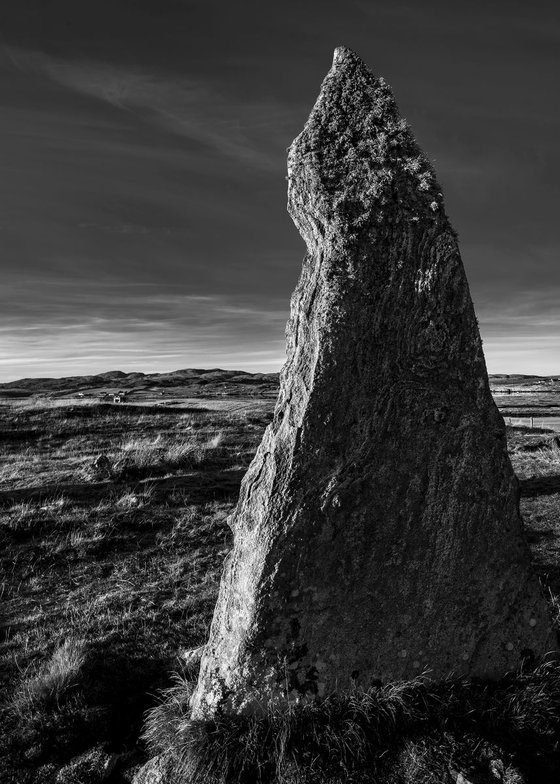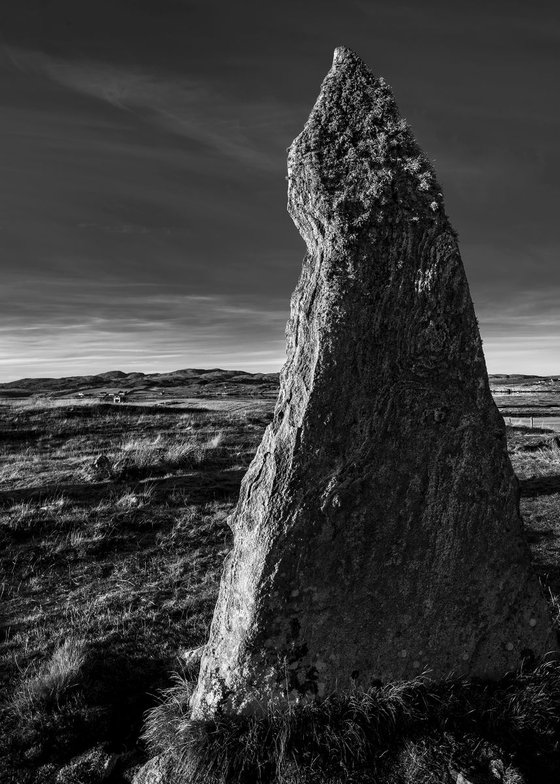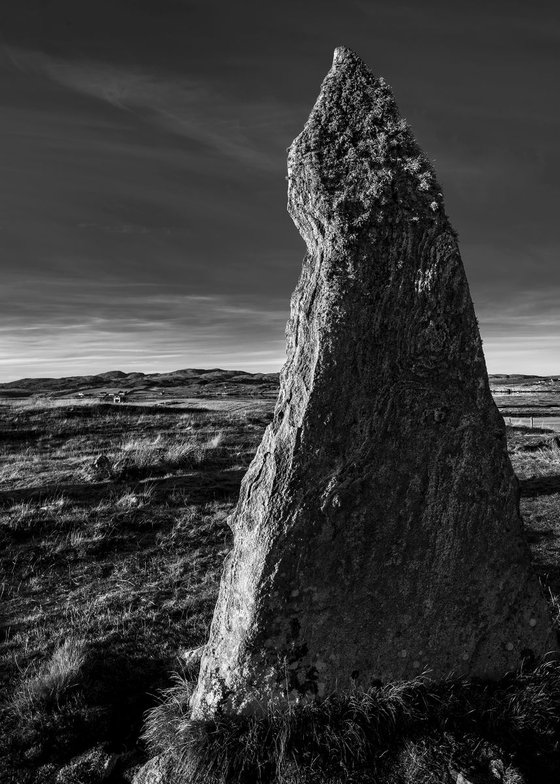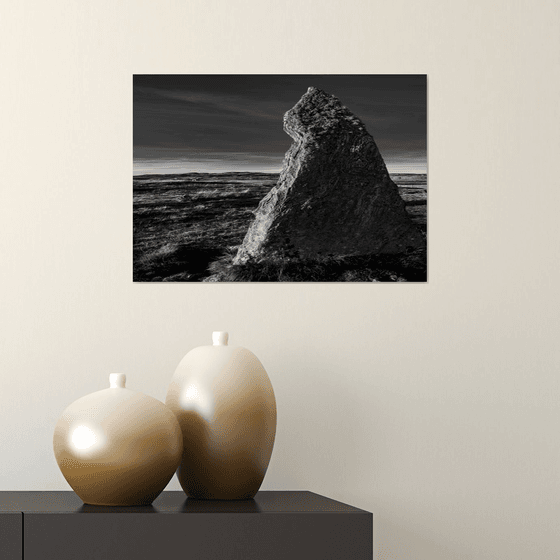- By medium
- By subject
- By budget
- Sales
- Gift cards
- Discover all art
- Artists
- Editors’ picks
- Ideas
Artwork description:
The main monument is extraordinary – a cross-shaped setting of stones, centred on a circle of tall stones. At its heart stands a solitary monolith 4.8m high. Lines of smaller stones radiate from the circle to east, west and south. From the north runs an avenue 83m long, formed by two lines of stones that narrow as they approach the circle. Within the circle is a chambered tomb._x000D_
_x000D_
Archaeological excavation in the 1980s proved that the main circle was erected 4,500–5,000 years ago, and the chambered tomb a few generations later. Around 3000 BC the climate in the Western Isles was warmer than it is today and the sea-level lower. Salmon ran in the rivers, deer, sheep and cattle grazed the surrounding hills, and barley grew on the broad ridge where Calanais stands. A cult or religion seems then to have swept through the British Isles, involving the building of large earthen enclosures (henge monuments), and impressive circles of timber or stone.
Materials used:
Giclée print using pigment inks on Hahnemühle Baryta FB paper.
Tags:
#scotland #isle of #outer hebrides #landscape photography #scottish landscape #standing stones #callanish standingGarynahine Stone Circle (2018) Photograph
by Stephen Hodgetts Photography
14 Artist Reviews
£95
- Photograph on Paper
- From a limited edition of 25
- Size: 42.01 x 29.69cm (unframed) / 25 x 35cm (actual image size)
- Signed and numbered on the front
- Style: Photorealistic
- Subject: Landscapes, sea and sky
Loading
Artwork description
The main monument is extraordinary – a cross-shaped setting of stones, centred on a circle of tall stones. At its heart stands a solitary monolith 4.8m high. Lines of smaller stones radiate from the circle to east, west and south. From the north runs an avenue 83m long, formed by two lines of stones that narrow as they approach the circle. Within the circle is a chambered tomb._x000D_
_x000D_
Archaeological excavation in the 1980s proved that the main circle was erected 4,500–5,000 years ago, and the chambered tomb a few generations later. Around 3000 BC the climate in the Western Isles was warmer than it is today and the sea-level lower. Salmon ran in the rivers, deer, sheep and cattle grazed the surrounding hills, and barley grew on the broad ridge where Calanais stands. A cult or religion seems then to have swept through the British Isles, involving the building of large earthen enclosures (henge monuments), and impressive circles of timber or stone.
Materials used:
Giclée print using pigment inks on Hahnemühle Baryta FB paper.
Tags:
#scotland #isle of #outer hebrides #landscape photography #scottish landscape #standing stones #callanish standing14 day money back guaranteeLearn more




